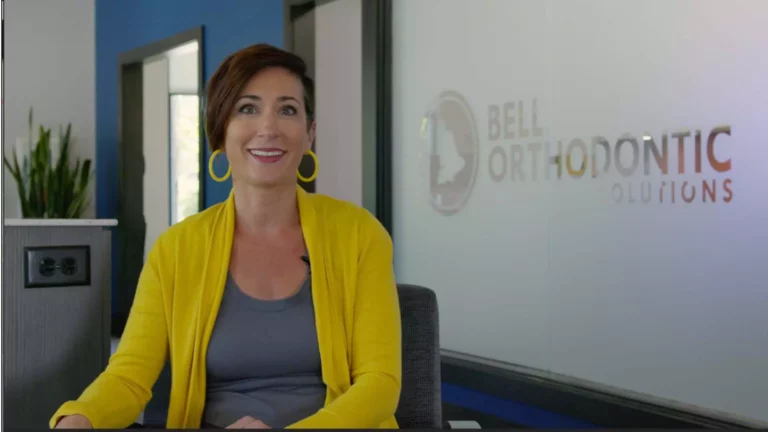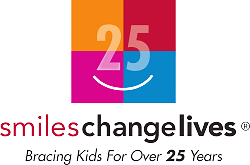FAQ
Your questions answered!
No, it is not necessary. Many of our patients are referred by their dentist, but many patients also take the initiative to schedule their own consultation and exam appointment.
The American Association of Orthodontists recommends an orthodontic screening at age 7. Several permanent teeth in most children have erupted by this age, allowing us to evaluate your child’s orthodontic status effectively. See the American Association of Orthodontics website to learn more about evaluation starting at age 7.
We are generally able to answer the following questions for you during your first visit:
- Is there an orthodontic problem, and if so, what is it?
- What must be done to correct the problem?
- Will any teeth need to be removed?
- How long will the treatment take to complete?
- What will the fee be, and what does it cover?
Removing teeth is sometimes necessary to achieve a balanced facial profile and straight teeth; however, new technological advances allow us to avoid extractions more frequently than in the past.
Appointments are scheduled according to each person’s needs. We offer various types of traditional braces and more modern aligner treatments. All treatments allow us to routinely see people once every few months to make appointments more convenient.
Once your treatment starts, most of your appointments can be arranged during after-school/work hours, but please understand that all later appointments are very popular and might not always be available! With advancements in technology, some appointments can even be virtual.
No, not for the first few visits. However, during lengthy in-treatment appointments, you are more than welcome to leave your loved one in our care!
We appreciate your busy schedule, and we are happy you are making the most of your time. However, to keep you informed about your child’s treatment progress, brushing and compliance, we will occasionally request a quick moment of your time for updates following appointments.
Typically, braces do not “hurt.” Since we utilize the most technologically advanced treatment systems, people are pleasantly surprised by how easily they adjust to bracing or aligners. A common question is: “do your teeth have to be numb,” the answer is NO, WAY! We do not use medicine or pinch/poke your gum tissue or teeth to apply braces or aligner attachments.
Braces can, however, make your teeth uncomfortable or cause a tight feeling, but generally, any over-the-counter pain medication such as Advil or Tylenol should alleviate any discomfort. Be sure to follow the dosing instructions on the label for your age and weight! We also recommend that you inform your doctor about taking these pain relievers!
Of course! No excuses for missing school, unfortunately! Even right after the braces or aligners are put on. Very rarely do our treatment plans interrupt your daily life.
Absolutely, and we urge you to use a sports mouthguard to protect you and your braces or aligners in contact sports. Be sure to share your enthusiasm for playing sports, band, or other extracurricular activities with your doctor at your initial exam, as it can affect what type of treatment is used!
Dr. Bell wants your treatment to be as comfortable and the least disruptive as possible to your daily routine. Be sure to ask us about mouthguards if you need help with fitting, sizing, or the type of guard to use.
Yes, and we’ll explain how braces can be broken by certain types of hard foods. Typically, foods that can damage braces are not suitable for your teeth anyway: ice, peppermints, popcorn, taffy, etc. If you like these foods, ask about Invisalign aligners instead of traditional braces!
Early treatment is often called interceptive. For Example: Just as we use technology to help land an airplane, we can use it to guide permanent teeth into place while a child is growing, often preventing the need for more advanced treatment later.
If interceptive treatment is done, it is usually initiated between ages 7-10. Then we monitor growth and decide if aligning the bite is needed later on. We believe in customizing treatment plans for every person, so be sure to talk with us about what is suitable for you or your child. We are happy to answer your questions.
There is no age limit for aligning your teeth. Adults can benefit from orthodontic treatment in many ways. Not only are straight teeth a treat to yourself and your self-image, but they are also easier to clean, and a healthy bite can result in fewer dental problems in the future. As long as there are no unresolved dental problems like cavities or gum disease, it is safe to have orthodontic treatment at any age.

Joanie's Smile Story
Braces
“Joanie’s smile journey was prompted by functional concerns with her bite. Joanie had been dealing with headaches and had been dependent on a night splint for several years. She noticed over time her bite had been changing and upon examination a significant asymmetry was noted. Her bite was misaligned and she only had contacts on a couple teeth. Joanie is a dental hygienist and is married to a dentist so she was well aware of the damage such a bite could lead to. She chose braces for her smile journey and demonstrated that even adults with significant bite discrepancies can undergo orthodontic treatment and receive beautiful, stable results. Her case was a fantastic transformation!”






